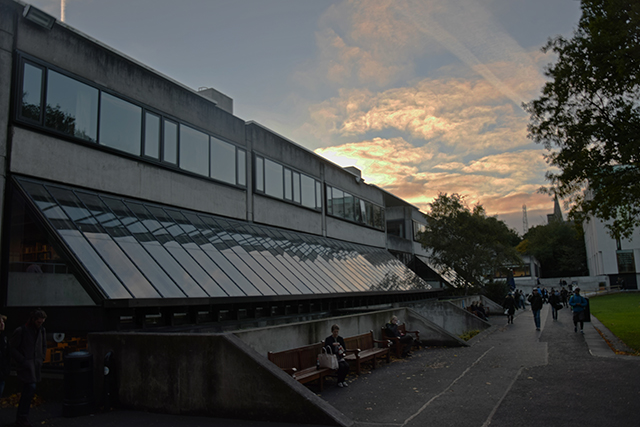The standard argument made against arts degrees is that they’re impractical, not suited for a student wishing to gain employment, and therefore a waste of that student’s time and money. This argument isn’t anything new, and such attacks on the arts and humanities have unfortunately sustained themselves, as trends occasionally move towards seemingly more direct and easily discernible pathways to monetary success.
Some take this argument a step further, and say that an arts course is not just wasteful on behalf of the student, but that it is a complete misuse of the resources of the academic institutions that offer such courses. Although there have been many exponents of this claim, one example is chemist Peter Atkins, who in his 1995 essay The Limitless Power of Science wrote that “while poetry titillates and theology obfuscates, science liberates”. As the title of this essay may have hinted us towards, this idea that science alone can act as a panacea to all of the world’s problems leans heavily on a scientism which employers and academics alike are now seeing as out of date.
Although there have been numerous attempts in science to escape the clutches of the arts and humanities, none have truly succeeded. For instance, in the 1920s, the group of academics that made up the Vienna Circle sought to form a philosophy developed from the formal logic of Bertrand Russell’s Principia Mathematica. This was hoped to eliminate the purely conceptual metaphysics that had existed up to that point, and which they deemed as unscientific and worthless, as it did not seem to be based on any empirically observable facts. However, they are generally considered to have failed in this regard, and since then there has been a strong resurgence of metaphysics in the theories of modern philosophers.
“This idea that science alone can act as a panacea to all of the world’s problems (…) employers and academics alike are now seeing as out of date.”
From this example, we can see how science can be idolised in temporary trends. If some large breakthroughs are made in the sciences, it is sometimes thought (or misconceived) that science can be the sole answer to the world’s issues. However, we must remember that we are more than what Nussbaum described as “useful machines,” and our relationship with rationality and logical truths is not as straightforward as some scientists would lead us to believe.
In Not for Profit: Why Democracy Needs Humanities, Nussbaum illustrates the shortcomings of a society which only funds business and STEM related courses. She comments on the broader range of Humanities courses as a whole as being beneficial for developing critical thinking, alongside a sense of compassion and thoughtfulness. Of the study of arts and literature, she writes that they cultivate “the narrative imagination,” defined as: “The ability to think what it might be like to be in the shoes of a person different from oneself, to be an intelligent reader of that person’s story, and to understand the emotions and wishes and desires that someone so placed might have.”
Nussbaum focuses her attention on the need for arts and humanities in democratic society, but we find similar reasons for the need for students of those subjects in business also. Terry Neil, who was chairman of global management consulting firm Accenture for over a decade, commented in an Irish Times article on why arts and humanities graduates were among the most desired of their recruits: “I realised that most of the world’s challenges are around people. Most of the decisions we take are emotional, and then we look for facts to back them up (…) We need rounded human beings.”
“Reconciliation to these conflicts can only occur if people better understand the workings of society (…) this is what is achieved in the arts and humanities.”
Perhaps it may be argued that it is pretentious of the arts and humanities faculties to consider themselves the sole guarantors of compassion and empathy in students. Instead, some argue that such qualities develop naturally and studying the thoughts and lives of others through the arts doesn’t really affect this. If we cannot better our understanding of other people in this way, what hope have we of preventing acts of callousness and depravity, since they certainly do occur? Poet and educational reformist Matthew Arnold argued in his 1875 work, Culture and Anarchy, that if we could not affect these factors in people, then our society would be “doomed either to an irreconcilable conflict (…) The sad picture, as one gazes upon it, assumes the iron and inexorable solemnity of tragic Destiny.”
The reconciliation to these conflicts can only occur if people better understand the workings of society and the people in it, and this is what is achieved in the arts and humanities. Perhaps some work might be done in business courses on how desire and want may function in people, but this would not meet the highly expertised demands of modern corporations, which can be met only by graduates of arts and humanities courses.
Clearly, it would be remiss to devalue arts and humanities courses in the way that a great many sceptics have. Though their merits might not seem to translate into financial success as easily as those of business and STEM courses, that is not reason to dismiss them in their entirety.
In a modern age which struggles to cope with a range of issues relating to population and globalisation, the need for the arts and humanities is needed more than ever to ensure that these rapidly changing populations are adequately represented by businesses and government bodies that understand and empathise with their experiences. The idea that either the sciences or the arts and humanities can or should exist in isolation from other faculties of academia has grown tired and weak, and it’s evident that symbiosis across the different fields is what today’s world demands.






